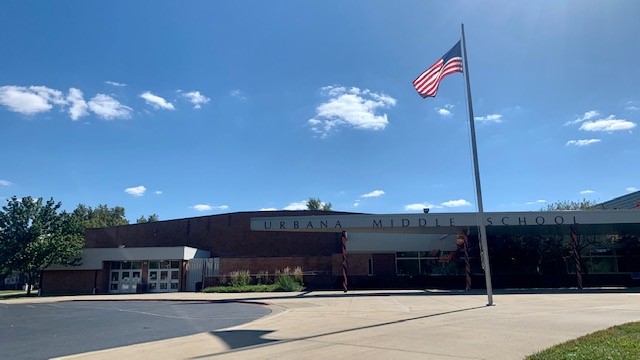URBANA — Urbana students report feeling isolated at school, because other students – and some teachers – have said hurtful things about their identity.
This is one finding from a 300-page report into whether Urbana School District 116 is an equitable place to learn, especially for historically marginalized groups. Read the final report here.
“Middle school students might not use words like microaggressions, but they can tell when they are being treated differently,” said Urbana Middle School Principal Derrick Cooper.
Over a year ago, the school district hired Systemic Educational Equity, LLC, a consulting firm run by Puerto Rican Chicagoan Ivette Dubiel. In addition to being an auditor, Dubiel has been an investigator with the Chicago Police Department and the state executive inspector general, as well as a teacher and school administrator.
Dubiel said Urbana does have an “amazing” track record of equity work, including proactive professional development for teachers and above-average teacher diversity.
The report also highlighted some sobering trends.
In a survey of about one-thousand students, about half said they had been the victim of hurtful comments. Over half thought bullying was a problem at school.
As Urbana Middle School principal, Cooper helped guide the goals of the audit with other local teachers, administrators and parents.
Not having read the full report yet, Cooper already plans to implement one recommendation — create a student equity advisory group. He wants the group to talk about their experience with the hurtful comments and identity-based bullying. He hopes they will also suggest solutions for a safer and better learning environment.
“I think it’s also important that we give kids agency too. It’s one thing to have my voice heard and another thing to have my voice go and then lead to change,” he said.
The report also found a spike in student dropouts.
Kimberly Norton is the district’s assistant superintendent of student learning. She says she was alarmed by the chart on dropout rates.
“There’s a number of factors that I believe that we see, post-COVID, impacting our students’ mental health. And so yeah, those are real numbers. And it is extremely alarming,” Norton said.
The auditors reported that about 1% of Black students were dropping out in 2018, compared to 15% last year. The rate for Hispanic and white students has gone up from about 1% to 8%.
Emily Hays is a reporter for Illinois Public Media. Follow her on Twitter @amihatt.

